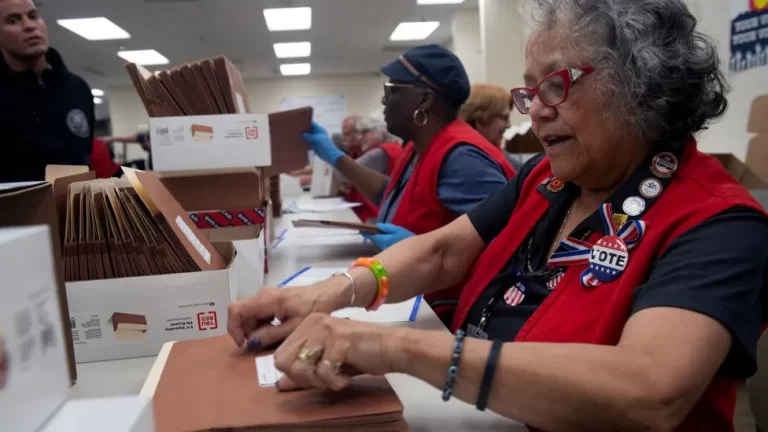It may be called Super Tuesday, but the results have not exactly been laden with excitement.
After US voters headed to the polls in 15 states and American Samoa, Donald Trump and Joe Biden remain on course to be the Republican and Democratic candidates for the general election in November.
Just because the results were predictable, however, doesn't mean there aren't things to learn as the dust settles on the largest single-day of voting in the primary calendar.
Here are some of the key takeaways so far:
Trump is on a roll – again
Mr Trump is well on his way to what is expected to be a dominating performance on Super Tuesday, with wins in North Carolina, Virginia, Colorado, Tennessee, Texas, Arkansas, Alabama, Oklahoma and Maine.
When all is said and done, the former president is expected to build a near-insurmountable lead in convention delegates, even if he will have to wait to mathematically guarantee that he is the Republican Party nominee until next week.
Exit polls give some indication of why the former president has been so dominant.
In North Carolina, 43% of Republican primary voters said immigration was the most important issue for them – a topic that has been at the top of Mr Trump's political agenda since he launched his first presidential bid in 2015. In Virginia, 64% said that they trusted Mr Trump over Nikki Haley on border security.
Those Virginia primary voters also said they wanted a candidate who shares their values and fights for people like them- qualities that tilt toward Trump – over temperament and electability.
Electability was one of Ms Haley's central pitches to voters. It apparently fell flat. Exit polls once again made clear that a majority of Republicans don't believe Mr Trump lost in 2020, with only 34% of Republican voters in North Carolina saying Mr Biden won that election “legitimately”.
Mr Trump may be denied a clean sweep, however, as the count in Vermont currently remains neck and neck.
Some warning signs for Trump
Even with his Super Tuesday dominance, there were some signs of continued disaffection with the former president among Republican primary voters. In Virginia and North Carolina, Ms Haley continued to do well in counties with large numbers of young, suburban and college-educated voters – and some of their concerns registered in exit polls..
Forty percent of Republican primary voters in Virginia and 32% in North Carolina said that Mr Trump would not be fit to be president if convicted of a crime.
Among North Carolina Haley voters, only 21% said they would vote for the Republican nominee “no matter who it is”.
Of course, opinions could change in the heat of the autumn general election campaign. Back in 2016, exit polls found that 75% of non-Trump voters said they would be dissatisfied with Mr Trump as the Republican nominee. In the end, 90% of Republicans backed him against Hillary Clinton.
Nikki Haley's exit plan still a mystery
The former South Carolina Governor opted not to hold a public event on the evening of Super Tuesday, perhaps reflecting the campaign's belief that there would be little to celebrate from the day's results.
While Mr Trump's sole remaining Republican opponent has benefitted from the support of anti-Trump voters, there simply aren't enough of them – even in states like Virginia that allow non-Republicans to vote in the party primary – to translate into wins or even narrow defeats.
Weeks ago she pledged to stick in the race through Super Tuesday, hoping to add to her delegate totals. Tuesday's results will do that, but not in any substantial amount.
Now the waiting game commences for when – and how – she will throw in the towel. Earlier this week, she said she did not feel committed, despite an earlier pledge, to support Mr Trump if he is the nominee.
Will she ultimately back the former president, despite her recent sharp criticisms? Is she angling for an independent presidential bid? With all the drama now stripped out of the nominating contests, the South Carolinian's future is one of the few immediate sources of mystery.
— CutC by bbc.com


